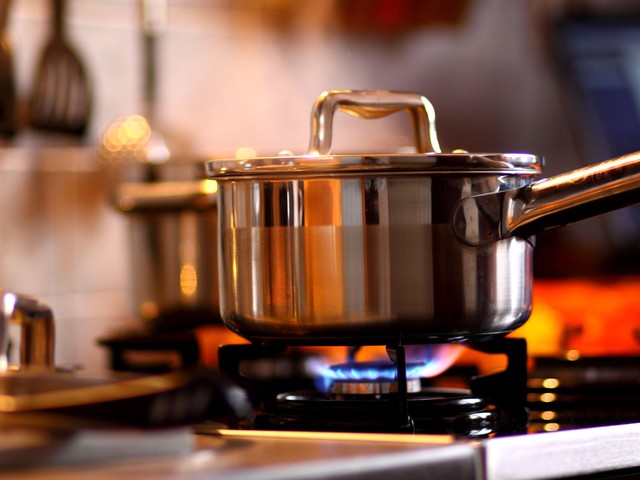Gas safety | How to switch to gas as a cheaper energy source
Eskom is hitting South Africa with a fresh round of loadshedding, this as the National Energy Regulator of South Africa (Nersa) approved the power utility’s electricity price hikes of 9.41%, 8.1% & 5.2% respectively for the next 3 years. As a result, many are now looking at alternative energy sources, including the use of gas as a more affordable solution.
So what does installing LPGas appliances in your home entail exactly? To be frank, it is not something your can undertake yourself.
Licensed, qualified installer
The first thing to note when hiring an LPGas installer to install LPGas appliances in your home is that they must be trained by the Liquefied Petroleum Gas Association of Southern Africa (LPASA), proven to be competent and thereafter be Registered with the SAQCC Gas.
In terms of the Occupational Health and Safety Act and the Pressure Equipment Regulations, only Registered LP Gas Installers can install and maintain LP Gas installations, says LP Gas Association of South Africa (LPGASA). The LPGas Association promotes safety in the industry and to this end presents a variety of training courses to cover all needs. Mandated by the Department of Labour, the LPGas Safety Association ensures that “all” LPGas Installers in this Industry, are competent and work to the required South African National Standards, to ensure they work safely and ensure their installations are compliant.
“Every LPGas installer must have in their possession a license card issued by the SAQCC Gas and on the card, the license expiry date is displayed. An installer whose license has expired is prohibited from carrying out any LPGas installations and/or issue Certificates of Conformity (CoC) until they have had their license card renewed. Should an Installer not have the Licence card in their possession, one can check their credentials and Licence validity on www.saqccgas.co.za,” advises LPGASA.
Costs associate with gas convertion
Keep in mind, there are several aspects to installing gas as an alternative energy source in your home – these include ensuring that gas components are correctly positioned in relation to electrical points, ventilation requirements when stored inside and adherence to specific distance from doors, drains, windows and electrical appliances when stored outside.
The cheapest gas stove installation / gas hob installation is an ‘in cupboard’ installation or an inside installation, according to GasInstallers.co.za.
“The cost to install a gas stove inside is cheaper as the regulator used is generally cheaper than “outside” regulators. The installation also needs fewer parts overall as the pipe run is only the internal pipe run and excludes the external pipe run. That does not mean the installation is in any way inferior, ‘in cupboard’ installations are subject to the suns rays so they do not deteriorate due to the sun, making maintenance cheaper.
Following is an estimated breakdown of indoor and outdoor installations:
- In cupboard/inside installation (9kg cylinder) – R1800
- Outside Installation 5m off piping or less – R2800
- Outside Installation more than 5m piping – R2800 + R100 per meter extra of piping
- Outside Installation with 2 cylinders 5m off piping or less – R3500
Certificate of conformity
Furthermore, on completion of the installation, the installer must issue the homeowner with a Certificate of Conformity (CoC) which indicates that the installation is compliant with the relevant regulations and South African National Safety (SANS) Standards. This is particularly important because this document will be required should the home owner make a claim from their insurer.
What is also important to note is that should an unregistered installer conduct an installation and problems with the installation are later picked up this may affect the outcome of the insurance claim.
According to Anneli Retief, Head of Dialdirect stresses that while insurance certainly provides a welcome financial cushion in the event of an accident, policyholders should take all the precautionary steps possible in order to prevent accidents from happening in the first place.
“You will definitely need expert advice if you are planning changes to plumbing or wiring or if you are undertaking gas installations,” he warns.
Homeowners will also need to supply a Gas Certificate of Conformity when selling. This certificate is usually valid for a period of five years, according to the requirements of Regulation 17 (3) of the Pressure Equipment Regulations (OHS ACT of 1993).
The gas certificate ensures that gas components are in a safe, working condition and do not have any leaks. It also certifies that the emergency shut off valves have been installed in the correct positions. It is also suggested that these installations are maintained and inspected every 12 months.
For further info regarding LPGas Installers, the LPGASA can be contacted on (011) 886 9702 or you can visit our website, www.lpgas.co.za
Author: Property 24
Article Date 19 Aug 2020
Article Source: https://www.property24.com/articles/gas-safety-how-to-switch-to-gas-as-a-cheaper-energy-source/29711
Safety around swimming pools in community schemes
Managing Health and Safety Risks in Community Schemes

